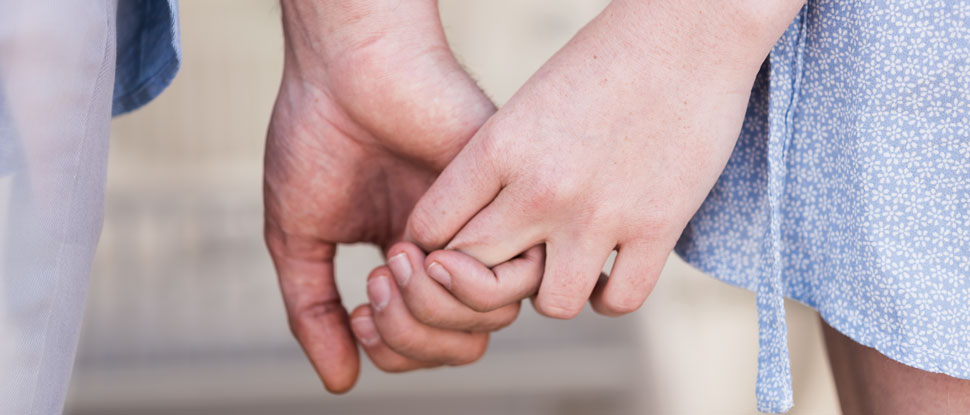- Home |
- Search Results |
- Dr Rangan Chatterjee on 5 ways to overcome loneliness

Loneliness is on the rise. In fact, it’s such a problem that the UK government has recently appointed a Minister for Loneliness. And it’s not just elderly folk, stuck in care homes. Modern parents juggle intense work pressures with looking after kids and find themselves with less time even to talk to their friends, let alone gather with them every day to unwind, laugh and de-stress. Younger people make hundreds of superficial connections online, but are losing the art of friendship and conversation in real life. According to the Mental Health Foundation, 18 to 34 year olds are more likely to feel lonely these days than those over 55.
As humans, we’re not designed to be alone. We evolved to live our lives as individual members of a large, supportive group. Back when the human brain was doing much of its evolution, we hunted together, ate together, sat around a campfire swapping stories, songs and smiles. We raised our children in extended families while also caring for our elderly. So it’s no surprise to me that modern life is taking its toll on our wellbeing.
Scientists have long known how toxic social isolation can be. As far back as 1979 it was found that people with the fewest social ties were three times more likely to die prematurely than those with the most. Being lonely means you’re 30 per cent more likely to have a stroke or a heart attack. High social stress is an even bigger risk factor for dying from a chronic disease than physical inactivity, alcohol intake and smoking combined.
Because we’ve evolved to live as a single cell in the larger organism of a mutually supportive human tribe, when we feel isolated the brain reacts as if something’s wrong. It thinks we’re in danger and puts us into that damaging, low-level chronic stress state. Research at the University of California, Los Angeles, found that rejection and isolation switch on inflammation. Over the long term, this makes your immune system weaker and predisposes you to a variety of life-threatening conditions, including type 2 diabetes, depression and obesity.
How to connect more – your action plan

All this can sound a bit worrying. After all, we can’t help how busy we are or how far away we might live from loved ones. But I’m willing to bet that, whether you already have a good network of friends, or you’re feeling a little lonely, there are steps you can take today to develop new friendships and nurture existing ones. I truly believe this is one of the most important ways you can reduce your stress levels – and safeguard your health.
1. Become a regular
As a nation, we’re lacking communities. The first two decades of this millennium have seen huge declines in the numbers of pubs and churches in the UK. Both of these were places to get together, share stories and experiences and discuss any issues that were worrying us. We might be developing a bit more of a European café culture, but there’s still a way to go. Whether it’s going to your local café at the same time every day for a coffee, or going to a club, church or recreation centre, regular visits somewhere and a happy, open demeanour should lead you to becoming connected to a new group of people. Could you find a weekly exercise or arts class, join or volunteer at parkrun, or sign up to a gym or sports club? Or perhaps you could start a book club, organise a rotating coffee morning among friends or suggest a supper club with neighbours?
2. Hold true friends close
You could say that social media goes some way to plugging the gaping hole that’s been left by the decline of our communities. But are all your Facebook friends real friends? Likes and comments are no substitute for hugs and conversation. Feeling connected is not about the number of friends you have but about the quality of those friendships. Perhaps you only have one or two. Try to have one interaction every week with one of them that goes to the heart. Confess your stress, let your guard down, be authentic and take risks in what you say and do, secure in the knowledge that they get you and will always have your back.
3. Get your diary out
When you’ve seen your mates’ holiday snaps, photos of their kids, and where they ate last weekend on their social media feed, you don’t always feel the need to catch up with them in person. But I’d urge you to do so, on a regular basis. Meeting up with your friends is not a luxury, it is an absolute necessity for good health.
The frequency will depend on many things including workload, family and distance, but do it as often as you realistically can. Why not pick up the phone right now and to arrange a get-together? And if you really can’t see them, pick up the phone, write a letter, send a card. Make time for something more meaningful than a text or Facebook comment.

4. Practise the 3D greeting
Whenever you greet a friend, make eye contact (most of us would do this anyway) but at the same time ensure there is some form of touch – a handshake or a hug – and some words that really mean something (‘Hey, so great to see you. I’ve missed you.’). I call this the 3D Greeting and I think it’s a really important way to connect with others. If you have a partner, make time for this at least once or twice a day. Make deep, meaningful eye contact, embrace warmly and exchange a few loving words. Eyes, touch, voice – it’s that easy.
5. Get in touch
Hug someone every day – family, friends, even colleagues. If you have children, make the effort to hug them at every opportunity. Playfighting, tickling or roughhousing is a good way to increase touch and known to help develop emotional resilience. The elderly are often lonely and miss out on physical contact, so make time for a prolonged, warm embrace when you see older friends and relatives. If you feel there’s a lack of touch in your life, book a massage.
Sign up to the Penguin Connect newsletter
By signing up, I confirm that I'm over 16. To find out what personal data we collect and how we use it, please visit our Privacy Policy